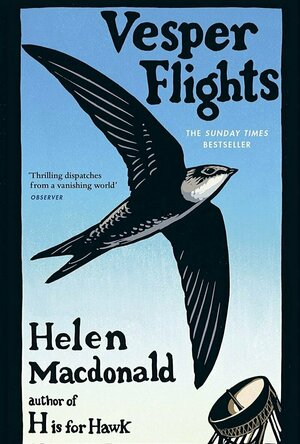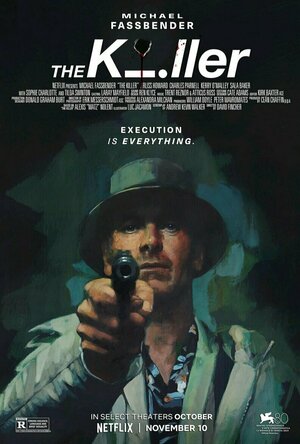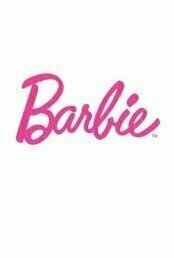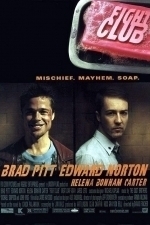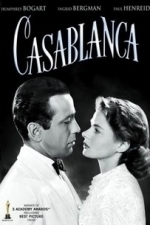
Construction Simulator 2
Games
App
Ranked #1 for the iPad & iPhone in 25 Countries In the Top Ten for the iPad & iPhone in 66 Countries...

Corkz - Wine Reviews, Database, Cellar Management
Food & Drink and Travel
App
One of TIME Magazine’s top 50 apps “Corkz if the best all-purpose wine app available for...

3500 English Words
Education and Games
App
In the app a 3500 nouns, verbs, adjectives and numerals are presented, broken into groups:...

Pepe&Colori- Augmented Reality / Réalité Augmentée
Education and Entertainment
App
English version below Découvrez Pepe et Colori® en réalité augmentée en trois étapes simples...
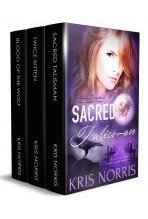
Dark Prophecy: A Box Set
Book
The Dark Prophecy series – a box set Sacred Talisman After roaming the earth for five...
Adult Paranormal Romance Ménage
Janeeny (200 KP) rated Vesper Flights in Books
Sep 7, 2021
Vesper Flights is Helen Macdonald’s latest book chronicling her relationship with nature. This is slightly different from her previous books in the respect it’s not a linear narrative but a collection of essays that also explores “The human relationship with nature”.
We are given more of an insight into Macdonald’s upbringing as she regales us with anecdotes of emotional journeys to her childhood home and dark episodes on a falcon breeding farm in Wales. Her passion for nature and the natural world comes across strongly, without sermonising. In one chapter she mentions Fox hunting and how she’s morally opposed to it, without admonishing those that do partake in it. A common thread throughout the essays is how we can be so involved with the conservation of nature yet still be so detached from it. Admittedly it’s something that I’ve never even thought about before, so I’ll be paying more attention to the way I interact with the world around me from now on.
.
One thing that seems to draw me in with Mcdonald’s writing is that there always seems to be an underlying sadness in the way she writes. Even when she’s partaking in a stunning bird-watching event, she never quite gives herself over to the joy and excitement of that moment. At one point after reading how she once covered herself in mud and twigs and stalked a herd of cows I just wanted to put my arms around her and ask if she’s ok. (Oddly enough in the same chapter there is a very dark incident with a dying Ostrich, but it was the incident with the cows that worried me most)
I’d be interested to read something Macdonald wrote before her father passed away. It is obvious that the death of her father did have a profound effect on her, and it would be curious to see if that is also what has influenced this mournful quality in her writing.
Don’t get me wrong, this isn’t a critique in any way I like the way she can convey the melancholy of a murmuration. As a perpetually positive person, I do need to be prodded with the emotion stick every now and again.
There is a line in one of the essays “I shouldn’t do it also because pulling at your heart on purpose is a compulsion as particular and disconcerting as pressing on a healing bruise” so maybe she gets some cathartic pleasure from heartache. I’m envious; I lost both my parents within a few years of each other and I find it very hard to engage in any strong emotions regarding this. I miss them, but I think my innate ability to detach myself from unpleasant situations has worked a little too well here and I can’t articulate exactly how that makes me feel.
Woah, so that was a major digression, let’s put that brick back and summarise the review, shall we?
After reading Vesper Flights, even if you don’t like the whole book, I defy you not to have a favourite chapter. It’s close but I think I liked ‘Goats’ the best, as not only is it a funny story, but you can practically hear the little smile as Macdonald reminisces about her dad
BankofMarquis (1832 KP) rated The Killer (2023) in Movies
Nov 18, 2023
Lower those expectations just a bit and you’ll be rewarded by an enteraning (enough) film/character study that is…interesting, but lands with a “thud”.
Based on the aforementioned graphic novel that was written by Alexis Nolent and illustrated by Luc Jacamon, THE KILLER follows the titular character after a hit has gone wrong and he must fight to save his life, while seeking vengeance on those that wronged him.
It is a “thinking man’s” hit-man film set in the seedy underground of a high-priced assassin. In lesser hands this could be a lesser John Wick knock-off, but in Fincher’s skilled fingers, THE KILLER is an intriguing character study.
It helps that the central figure of this film is portrayed by Michael Fassbender who is fascinating to watch even if he is just sitting around looking out a window. And this is good…for he spends the first 20 minutes of this film…sitting around looking out a window (waiting for his target to show up). It is a unique choice in a film such as this and with Fincher’s direction and Fassbender’s performance, it works more often than it doesn’t.
After the initial hit goes awry, sending Fassbender’s character on a global manhunt, the rest of the film is a series of one-on-one scenes with THE KILLER versus THE LAWYER (Charles Parnell - who is turning into a pretty reliable “that guy” character actor). THE KILLER versus THE BEAST (in what is the best action scene in the film) and THE KILLER versus THE CLIENT (portrayed by Arliss Howard in another portrayal of an “a-hole rich guy”). All of these scenes work for the most part, but none of them “knock it out of the park”.
The only scene that comes close to knocking it out of the park is THE KILLER versus THE EXPERT and that is because The Expert is played by Tilda Swinton and has 90% of the dialogue in the scene. It is always exciting to see 2 marvelous performers sitting across a table, playing off each other and Fassbender and Swinton (especially) shine in this portion of the film.
The problem with THE KILLER is that the separate scenes do not add up to a cohesive whole - and certainly the parts are more interesting than the final procduct and that blame needs to be placed at the feet of Director Fincher who should have been able to blend these scenes together better. He isn’t helped by a finale scene that lands with a thud…on purpose. But a “thud” is a “thud” and that is a tricky way to end the film.
And…in the case of THE KILLER…Fincher (and Fassbender) did not build up enough equity heading into the final scene that one can forgive “the thud”….though it is still a pretty good film. The “thud” pulls this film down from “really good” (not great) to just…”good”.
Letter Grade: B
7 stars (out of 10) and you can take that to the Bank(ofMarquis)
Letter Grade: A-
8 stars (out of 10) and you can take that to the Bank(ofMarquis).
BankofMarquis (1832 KP) rated Barbie (2023) in Movies
Jul 21, 2023
As another toy’s slogan puts it, “there’s more than meets the eye” to this film.
And one should have expected something more than just a “surfacey-fun” film from the Writer/Director of such fare as LADYBIRD and FRANCES HA. Gerwing uses the stereotypes of Barbie and Ken to take a look at our society and the inherent hierarchy of the sexes while peeling back the layers of the key players to make them more than the plastic dolls they portray.
And…it works surprisingly well for adults - not so much for kids.
Margot Robbie, of course, is perfectly cast as the titular Barbie. She has the looks and the vacuous devil-may-care attitude of “Stereotype Barbie” and is a comfortable, pleasing entity to share this adventure with. But, with Gerwig’s direction, Robbie’s performance reveals, subtly, layer after layer until - at the end - we end up with a full fledged character and not just a living doll.
Ryan Gosling is just as strong as Barbie’s counterpart, Ken. He morphs from a Barbie worshipping boyfriend to something else once he encounters the real, male-dominated world. The BankofMarquis wondered why Gosling would agree to do a film that, on it’s surface, appears to be a one-note joke-fest, but once the film really drives to it’s point, one can see why Gosling agreed to be in this.
Issa Rae, Kate McKinnon, Simu Liu, Michael Cerra, Helen Mirren (as the narrator) and America Ferrara all spark - at times - during this film while it was good to see Rhea Perlman (Carla on CHEERS) have a role that she could sink her teeth into.
Only Will Ferrell - as the money hungry CEO of Mattel - falls short of interesting. His character - one of the only “real world” characters in this film - stays stereotypical throughout the movie. He is the only complete caricature in this film…and perhaps that is on purpose.
Credit for the surprising depth of this film goes to Gerwig who brings her sensibilities to this film to make a comment on our society. It’s a bold move by Gerwig and works well…unless you are a Mom that is bringing your 5 or 6 year old child to this film.
And, that is the caution to this movie. It’s not, necessarily, made for the youngsters that play with Barbies. The kids will love the early going of this film, but the more adult themes in the middle of the movie will probably make a good deal of them squirm in their seats, since these moments of depth will go over their heads.
A surprisingly fun…and deeper than it appears to be….film, this Barbie is a multi-level dreamhouse.
Letter Grade: A-
8 stars (out of 10) and you can take that to the BankofMarquis
DaveySmithy (107 KP) rated Fight Club (1999) in Movies
Dec 3, 2024
The story is told through the eyes of the unnamed narrator (Norton), a white-collar worker trapped in a monotonous life. Crippled by insomnia and a desperate longing for purpose, his mundane existence takes a dramatic turn when he crosses paths with Tyler Durden (Pitt), a magnetic, anarchic soap maker. Together, they form the titular fight club—a raw, underground outlet for men to vent their frustrations by literally beating them out of each other. What begins as an unconventional form of therapy soon spirals into a chaotic and dangerous movement, leading the narrator down a path of self-destruction and shocking revelations.
Edward Norton delivers a career-best performance as the narrator, capturing the character’s descent into madness with unnerving precision. His dry wit and self-deprecating humor make him relatable, even as his actions become increasingly unhinged. But it’s Brad Pitt who truly steals the show as Tyler Durden. Charismatic, unpredictable, and dripping with swagger, Pitt embodies the fantasy of rebellion and freedom that so many viewers secretly crave. Together, the two actors create a mesmerizing dynamic, with Tyler representing everything the narrator wants to be—and fears he might become.
Helena Bonham Carter rounds out the core cast as Marla Singer, a nihilistic wildcard who both disrupts and grounds the narrator’s chaotic journey. Her chemistry with Norton is as compelling as it is unconventional, adding a layer of emotional complexity to an otherwise hyper-masculine narrative.
What sets Fight Club apart is its fearless critique of modern society. It skewers consumerism, masculinity, and the emptiness of the so-called “American Dream,” forcing viewers to confront uncomfortable truths about their own lives. Fincher’s direction is sharp and unrelenting, with the film’s gritty visual style perfectly complementing its nihilistic tone. The innovative use of CGI, fourth-wall-breaking moments, and hauntingly effective cinematography by Jeff Cronenweth keep the audience on edge, unsure of what to expect next.
Yet, Fight Club is not without flaws. Its provocative themes can feel overly blunt at times, and some viewers might find its violent and anarchistic undertones alienating. Additionally, while the infamous plot twist is masterfully executed, it risks overshadowing the film’s deeper messages upon rewatch.
The soundtrack, anchored by The Dust Brothers’ industrial score and the unforgettable use of The Pixies’ “Where Is My Mind?” in the climax, elevates the film to iconic status. These elements, combined with razor-sharp dialogue and endlessly quotable lines, solidify Fight Club as a masterpiece of late-90s cinema.
While it may not be for everyone, Fight Club is a bold, daring, and unforgettable experience that challenges societal norms and forces introspection. It’s an audacious 9/10 film—flawed but brilliant, much like the chaos it portrays.
DaveySmithy (107 KP) rated Casablanca (1942) in Movies
Dec 3, 2024
What makes Casablanca truly extraordinary is its perfect balance of intimate romance and global stakes. Set during World War II in the Moroccan city of Casablanca, the story revolves around Rick Blaine (Bogart), a cynical American expatriate who runs a nightclub, and Ilsa Lund (Bergman), the woman who once broke his heart. Their unexpected reunion is fraught with unresolved emotions and set against the backdrop of political intrigue, resistance efforts, and the shadow of Nazi oppression. It’s not just a love story—it’s a story of sacrifice, morality, and the search for meaning in chaotic times.
Humphrey Bogart, known for his tough-guy persona, delivers a nuanced and deeply human performance as Rick. His dry wit, vulnerability, and quiet heroism make Rick one of cinema’s most iconic characters. Bogart effortlessly conveys the tension between Rick’s outward indifference and his inner turmoil, making his journey from apathy to sacrifice profoundly moving. Opposite him, Ingrid Bergman is luminous as Ilsa. Her portrayal is layered with strength, grace, and a quiet sadness that makes her character unforgettable. The chemistry between Bogart and Bergman is electric, their unspoken longing resonating in every glance and line of dialogue.
The supporting cast is equally brilliant. Claude Rains as the charmingly corrupt Captain Renault steals nearly every scene he’s in with his biting humor and moral ambiguity. Paul Henreid’s portrayal of Victor Laszlo, the noble resistance leader, adds gravitas to the story, while Sydney Greenstreet and Peter Lorre deliver memorable turns as colorful figures in Casablanca’s shadowy underworld. Every character, no matter how small their role, feels fully realized and essential to the tapestry of the story.
What elevates Casablanca to legendary status, however, is its script. Few films boast dialogue as sharp and iconic, with lines like “Here’s looking at you, kid,” and “We’ll always have Paris” becoming ingrained in pop culture. The screenplay, penned by Julius and Philip Epstein and Howard Koch, is a masterclass in storytelling, seamlessly blending romance, suspense, and humor. Each scene serves a purpose, driving the plot forward while deepening the emotional stakes.
Max Steiner’s score is another standout element, with the recurring use of “As Time Goes By” becoming as timeless as the film itself. The music weaves through the narrative, underscoring moments of joy, heartbreak, and tension with haunting beauty.
But perhaps the most remarkable aspect of Casablanca is its ability to resonate on multiple levels. It’s a sweeping romance, a gripping war drama, and a meditation on sacrifice and duty, all rolled into one. Its themes remain universal, its characters relatable, and its emotional impact undiminished by time.
In a world filled with good movies and great movies, Casablanca stands apart as a perfect one. It’s not just a film—it’s an experience, a masterpiece that speaks to the heart and soul. For that, it earns a well-deserved 10/10.
